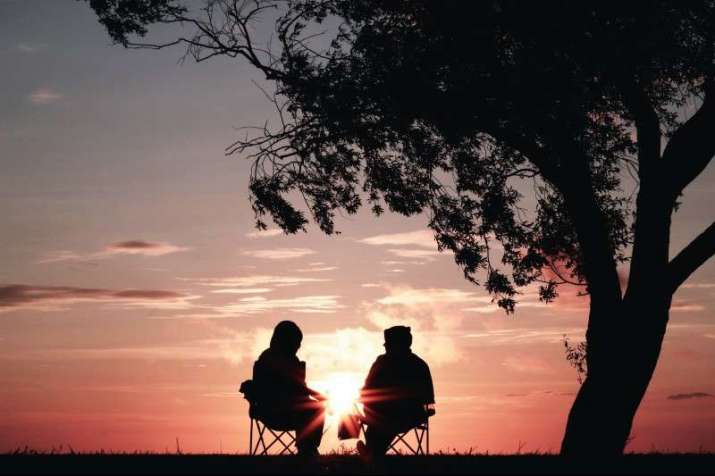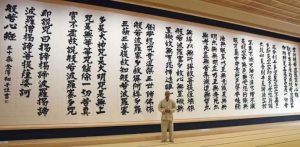
I joined a Buddhist group 11 years ago and went on to become an ordained priest in that sangha. Over the years, this sangha became my family. I traveled to different countries to attend retreats, I cooked and ate many meals with them, I fell out with them, made up with them, and felt supported and loved by them. A month ago, I left both my order and my Buddhist teacher. How has it been to leave? Who am I now? And what will happen next?
The Buddha encouraged people to come together with others who are practicing. He knew how difficult it can be to persist in our practice alone. A good sangha has many purposes. It offers us teachers who are further along the spiritual path than we are, and who can guide us when we are lost. It gives us many opportunities to learn about ourselves as we encounter different ways of doing things or of seeing the world. Having company helps us to hold to our—often countercultural—values and practices. Our fellow sangha members offer us encouragement when we are low, and when it’s their turn to be low we can remind them of what they told us. We are reminded that we are not alone.
What have I received from my Buddhist family over the years? I wouldn’t have many of the good things I have today if it wasn’t for my old sangha. Apart from a lovely husband, whom I met through the group, I have met good friends, had many precious experiences, received faith and teachings, and been given a temple to run. I have been able to deepen my relationship with the divine, through being inspired by other’s connections to the Buddha, and through doing Buddhist practice with others. I’ve learned a gargantuan amount about myself, others, and the world.
Of course, being a member of a sangha hasn’t always been a walk in the park. A few years ago, I remember speaking to a senior colleague about a terrible tangle I’d gotten into with another colleague. He told me that he couldn’t think of any sangha members who hadn’t been in a serious conflict with someone else at some time or another. I’m still a bit caught in this particular tangle, and in a few others, despite my efforts to “do my own work” and to follow the Buddha’s example. Human relationships can be messy and painful, especially when we become close to people. We have no control over the behavior of others, and less control over our own behavior than we’d like to think!
The depth of my relationship with my old teacher and sangha has really come home to me over the past month. I can’t count the times I’ve found myself in my office at 3am, journaling or sitting in front of my Buddha and trying to soothe the many distressed parts of me so that I can go back to sleep. There has been anger and frustration, fear of the future, disorientation, and a lot of painful grief. I’m just at the beginning of feeling the loss and of sorting through what I received over all those years. What will I keep? What will I hand back? Where does it leave me? If I hadn’t had the support of a few friends who left the sangha at the same time, I don’t know how I would have coped.
Our relationship with the Buddha, if we are able to allow ourselves to surrender to it, is the most intimate and consoling and reliable relationship we will ever have. Refuge is at the center of Buddhism. No wonder our relationships with the conduits of that divine spirit are also freighted with emotion, meaning, and complication. If I hadn’t been as close as I have been to my old teacher and sangha, I really don’t know if I’d have been able to lean into refuge in the way I have. This refuge is the most precious thing I have in my life and I pray that it will always be with me.
Although I have found it painful to be in my sangha and in other sangha-like groups in my life, I still believe that a sangha is generally a good thing. Sangha is where we bash into each other and begin to smooth off each other’s rough edges. It’s where we have many mirrors held up for us, so we can catch sight of ourselves with all our beautiful strengths and our beautiful flaws from many different angles. We never see the back of a new haircut unless the hairdresser is there to help us. Sangha is a microcosm of life as a human among other frail humans, and our commitments toward each other concentrate both the difficulties and the love, much as marriage does.
I’m grateful to still be a member of a few sanghas—a group of Extinction Rebellion Buddhists from across traditions, a 12-step community, and the community of Internal Family Systems therapists. In various ways, these places offer me the same benefits that I’ve received in my Buddhist sangha. I also receive these benefits in a more “piecemeal” way—from the few senior Buddhist friends I use as my mentors, and through the conversations I have with various spiritual teachers either in the flesh or through their books, regardless of their particular faith. I am determined to continue fostering these mentor relationships with those spiritual friends who have my back, and who will also see things about me that I don’t want to see. I wish that they be kind enough to point these things out to me!
I already miss the comfort of knowing that I am one of many, offering a particular presentation of the Dharma across the globe. And, as I grieve, there are already green shoots growing—friendships with other Buddhist teachers and connections with those who continue to practice with us here at the temple. I am already a part of a new sangha, whether I like it or not. We have opportunities—to put the Earth at the center of what we do here, to simplify things, to strengthen our inclusivity policies, and to flatten our structures. That feels exciting.
I am sure I’ll go on to make some of the same mistakes that were made in my last sangha. Hopefully, I’ll make some different ones too. More than anything, I hope that I can continue to pass on what I’ve received over the past decade—the riches of the Dharma. I will always be eternally grateful for that gift.






